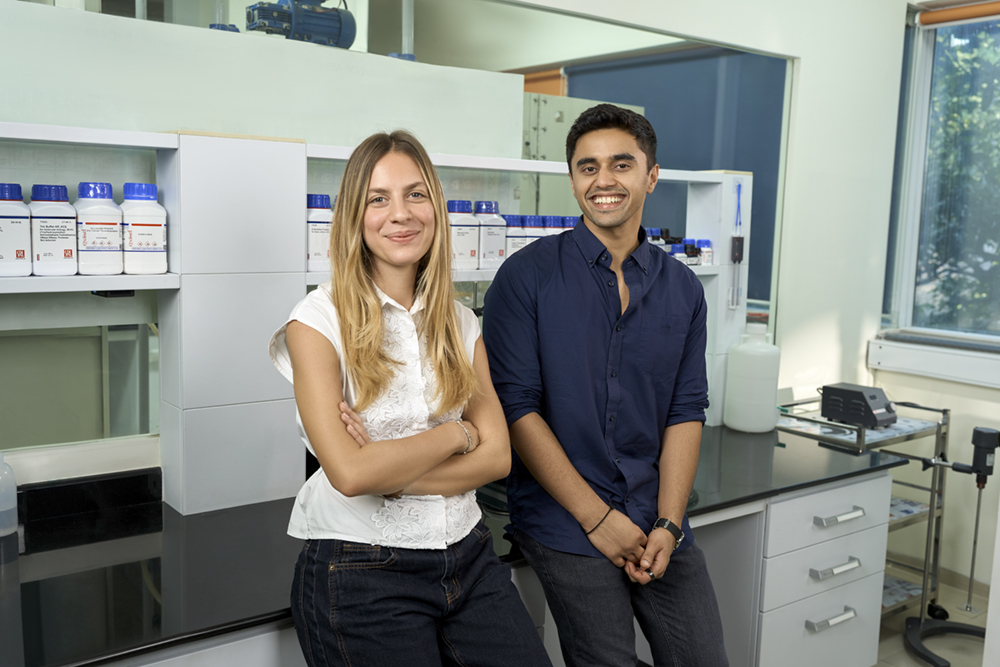

21st.BIO aims to disrupt dairy protein market with precision-fermented alpha-lactalbumin licensed from Novonesis
21st.BIO, the Danish-US precision fermentation company, is advancing plans to transform the supply of bovine alpha-lactalbumin, one of the dairy industry’s most coveted proteins, with the launch of a development program built on a high-yield microbial strain licensed exclusively from Novonesis. The company believes its approach could redefine not only the economics of producing this rare protein but also its reach across diverse nutrition markets.
Alpha-lactalbumin, frequently referred to as alpha-lac, is prized for its nutritional density, ease of digestion, and its links to immune function and cognitive development, particularly in infants. In human milk, it is the dominant whey protein, contributing significantly to the protein content and nutritional benefits. However, in cow’s milk, alpha-lactalbumin makes up only around 3% of the total protein composition, which has long posed challenges for large-scale extraction.
“Alpha-lactalbumin is incredibly valuable, but current supply from cow’s milk is limited. It is challenging and costly to extract at scale, which is why current supply is mostly reserved for the very high-end infant formula market,” commented Thomas Schmidt, Co-founder & CEO of 21st.BIO. “Through precision fermentation, we make production more efficient, sustainable, and – most importantly – available to many, not just the few. On top of this, we are able to produce alpha-lactalbumin of high purity, an important parameter for infant nutrition.”
Traditional dairy extraction methods are highly inefficient when it comes to isolating alpha-lactalbumin in pure form. Estimates suggest that it takes approximately 1,000 liters of milk to produce just 1kg of purified alpha-lactalbumin. This limitation has kept the ingredient largely confined to premium infant nutrition products, leaving a substantial untapped market in other food and nutrition categories.
The fermentation process that 21st.BIO employs leverages Aspergillus as the production host. This particular organism was selected due to its ability to carry out complex post-translational modifications that are necessary for producing a functional protein identical to the version found in milk. “It’s a robust platform that aligns well with food-grade production and downstream scalability,” Schmidt said. “The host organism has been used and approved for multiple food products across the world.”
The strain itself comes from Novonesis, a company known for its pioneering work in biosolutions, including enzymes and microbial technologies. While Novonesis will continue focusing on other protein innovations, it saw a strategic opportunity in working with 21st.BIO to commercialize this strain.
“We are proud to see our world-class strain being brought to market to solve current challenges in food and nutrition by 21st.BIO,” added Thomas Batchelor, Senior Vice President of Advanced Health and Protein Solutions at Novonesis. “We continually strive to be at the forefront of innovation and this strain is one result of our pioneering work in R&D, strain development and production. We see alpha-lac as a great fit to 21st.BIO’s strategy and portfolio, making it the right path forward while we in Novonesis continue to focus on other protein innovation and we’re excited about the future of protein made with precision fermentation.”
As the global food industry grapples with sustainability pressures and evolving consumer demands, precision fermentation has emerged as a powerful tool to produce animal-identical proteins without the need for livestock. This technology not only promises a more consistent and scalable supply but also sidesteps many environmental burdens associated with traditional agriculture.
Schmidt believes that moving alpha-lactalbumin production to fermentation could dramatically lower the environmental footprint of the protein. “Producing alpha-lactalbumin via precision fermentation can dramatically reduce land, water, and greenhouse gas emissions compared to traditional dairy,” he said. “The exact impact depends on the final production setup, but the promise is real and significant.”

Studies from organizations such as RethinkX, the Good Food Institute, and Boston Consulting Group suggest that precision fermentation could reduce greenhouse gas emissions and nitrogen release by 70-95%, while requiring up to 90% less land and over 90% less water compared to conventional dairy operations.
Beyond environmental benefits, 21st.BIO emphasizes the advantages of a cleaner and more controlled production process. Traditional dairy-derived proteins can carry risks related to contaminants such as antibiotics, hormones, or viruses. By contrast, fermentation-based processes offer a high degree of predictability and safety. “Our fermentation process delivers a high ratio of alpha-lactalbumin to host cell impurities, which simplifies purification significantly. Compared to milk-based extraction, there’s no risk of antibiotics, hormones, or viral contamination – and we can meet very stringent purity requirements,” Schmidt explained.
Ensuring the safety and regulatory compliance of precision-fermented proteins is particularly critical in applications like infant nutrition, where purity standards are stringent. Schmidt said the company plans to pursue a staged regulatory path. “We plan to pursue regulatory approval through the GRAS and Novel Food frameworks first, and then follow up with infant formula approvals, which are understandably rigorous and time-intensive,” he said.
While infant nutrition remains a priority market, Schmidt sees considerable potential for alpha-lactalbumin across a wider array of applications. “Alpha-lactalbumin has strong potential beyond infant nutrition. We see growing demand in elderly and clinical nutrition, sports nutrition, and high-end food supplements – all areas where digestibility, purity and amino acid profile really matter,” he said.
The company’s commercial strategy involves more than simply selling fermentation strains. 21st.BIO plans to serve as a partner to food and beverage manufacturers, offering not only microbial strains but also technical support for fermentation process development, assistance with scaling production to industrial levels, regulatory guidance, and royalty-based licensing agreements once products hit the market.
“We go beyond licensing our technology to our partners,” Schmidt said. “We help them through the entire process of industrial-scale production. Our experience in functional proteins and our goal of achieving at least price parity with traditional dairy makes this a game-changer for companies looking to supply the market.”
Achieving cost parity with dairy-derived alpha-lactalbumin remains an important target for the company. “We’re not yet there, but we’re closing in,” Schmidt noted. “Right now, the main cost driver is the fermentation titer – the concentration of protein we can produce in fermentation. That’s where we’re focused.”
The urgency to find alternative protein solutions is growing, fueled by concerns that traditional dairy production may not keep pace with future demand. Factors such as aging farming populations, limits on available land, and increasing environmental regulations are contributing to mounting pressure on the dairy industry. “We’re heading for a protein supply gap,” Schmidt said. “The industry itself is telling us: We won’t be able to meet future demand using traditional methods alone. Precision fermentation is a complementary solution – one that can reduce pressure on natural resources, lower environmental impact, and create a more distributed and resilient supply chain.”
Industry analysts project that demand for dairy proteins will continue to rise, driven by shifting dietary habits, growing populations, and heightened interest in functional and specialty nutrition products. Alpha-lactalbumin’s role in such products is particularly significant due to its high essential amino acid content and potential benefits for gut health, immunity, and cognitive function.
21st.BIO has already demonstrated pilot-scale production and is now planning for industrial-scale manufacturing in the coming year. Schmidt indicated the technology itself is ready and the focus is now on working with commercial partners to bring precision-fermented alpha-lactalbumin to market.
With its exclusive license from Novonesis and a growing portfolio of fermentation expertise, 21st.BIO is positioning itself as a pivotal player in the future of dairy protein production. The company’s vision reflects not only a technological shift but also a broader transformation in how the food industry approaches sustainability, supply chain resilience, and nutrition.
As consumers and manufacturers alike increasingly look for products that align with both health and environmental values, the potential for precision-fermented alpha-lactalbumin could stretch far beyond its current niche in infant nutrition. For Schmidt and his team, the journey is about more than simply producing a new ingredient – it’s about reshaping how the world thinks about protein itself.
“We believe precision fermentation can be the key to unlocking a sustainable and scalable protein future,” Schmidt said. “With alpha-lactalbumin, we’re taking a significant step toward making high-quality nutrition accessible to more people, while reducing the burden on our planet.”
If you have any questions or would like to get in touch with us, please email info@futureofproteinproduction.com

.png)






